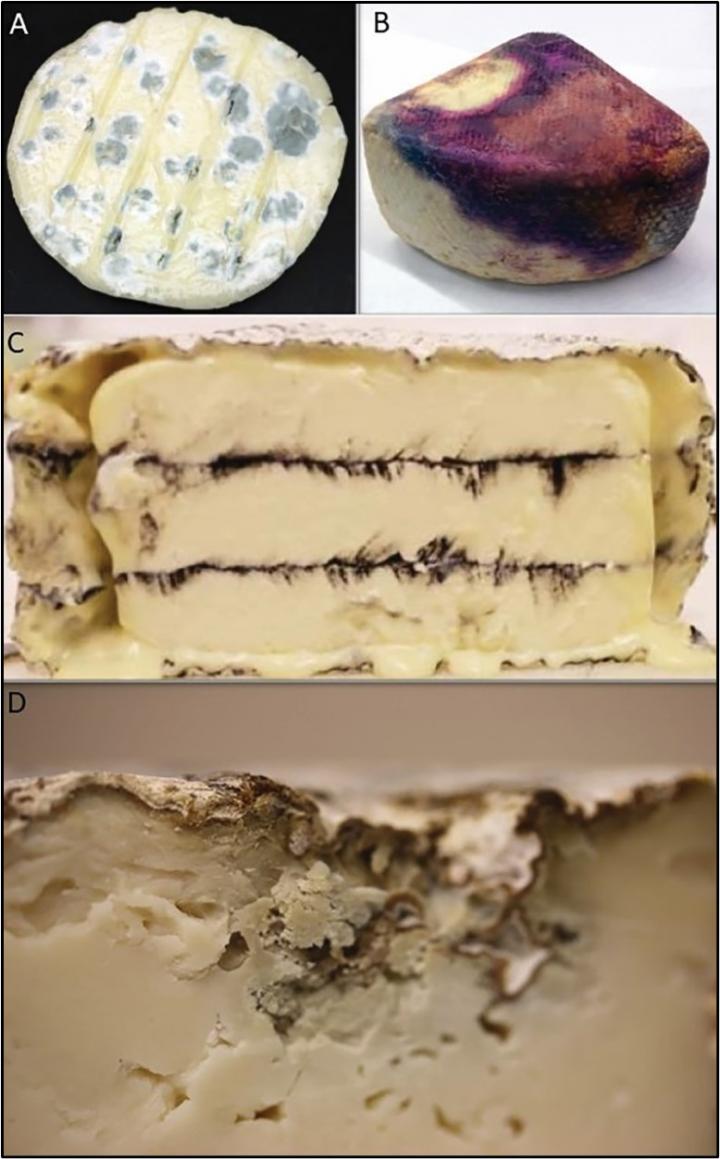Top concerns of artisan cheesemakers are examined in new research in the Journal of Dairy Science®

Credit: Refer to caption
Philadelphia, April 20, 2021 – American artisan cheese has become increasingly popular over the past few decades. Understanding spoilage concerns and the financial consequences of defects can improve quality, profitability, and sustainability in the American artisan cheesemaking industry. In an article appearing in the Journal of Dairy Science®, scientists from Tufts University took the pulse of artisan cheese producers in the United States through an industry survey.
The authors of this study provide a snapshot of the artisanal cheesemaking community indicating that many (71 percent) are concerned about undesirable surface molds and incorrect or unexpected colors or pigments on rinds (54 percent). Of the 61 cheesemakers surveyed, 18 percent were very concerned about quality and spoilage problems, 39 percent said that their quality standards are not met annually, and 33 percent said their quality standards are not met monthly.
“The growing US cheesemaking industry will require additional resources moving forward that address not only safety but also quality and spoilage concerns,” said first author Megan Biango-Daniels, PhD, Biology Department, Tufts University, Medford, MA, USA. “One interesting observation from our data is that cheesemakers, as a group, are unsure about how widespread quality issues are but strongly agree that additional resources to help address quality issues would benefit them personally.”
Although 62 percent of survey respondents reported that only between zero and five percent of their product was lost or made less valuable due to quality issues annually, seven percent of cheesemakers had losses of over 20 percent of their product. Nearly all respondents agreed that better quality of their products would lessen waste, boost profits, and enhance production. In answer to open-ended questions, those surveyed said that they would like to have access to additional online resources addressing quality topics and to digital forums to collaborate with experts and peers when problems emerge.
Dr. Biango-Daniels added, “Regardless of what these future resources will look like, it’s important that cheesemakers budget for professional development, organizational membership, and continuing education (training online or in-person) in their business plans so that they can afford to invest in the resources that enable production of safe, high-quality cheese.”
The study suggests that addressing the concerns of cheesemakers will remain challenging because of resource and tool development barriers, the relatively few scientists who specialize in these subjects, and the limited funding sources available for this type of research.
###
Media Contact
Eileen Leahy
[email protected]
Related Journal Article
http://dx.




